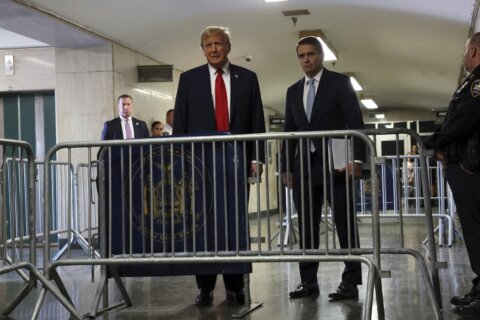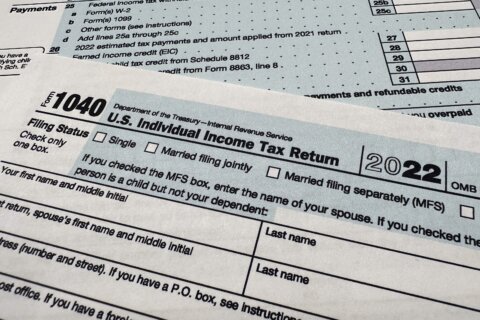President Lyndon B. Johnson signed the Voting Rights Act of 1965 into law on August 6, 1965.
The legislation served to protect and enforce the 14th and 15th Amendments of the Constitution. It was enacted in response to voter suppression in the 1960s by state governments, local governments and law enforcement, and prohibited states from denying a person the right to vote based on race or color and banned discriminatory literacy tests.
The monumental law was prompted by a series of civil rights movements and events. Most notably, the 1965 Selma to Montgomery March in Alabama, which resulted in about 600 non-violent protestors being attacked by state troopers in Selma. The events of that day have since been referred to as ‘Bloody Sunday.’
After Bloody Sunday, Johnson gave a joint speech before Congress saying, “There is no constitutional issue here. The command of the Constitution is plain. There is no moral issue. It is wrong, deadly wrong, to deny any of your fellow Americans the right to vote in this country.”
“Many of the issues of civil rights are very complex and most difficult. But about this there can and should be no argument. Every American citizen must have an equal right to vote. There is no reason which can excuse the denial of that right. There is no duty which weighs more heavily on us than the duty we have to ensure that right,” Johnson said.
In 2013, the US Supreme Court struck down a key provision of the Voting Rights Act of 1965 that required states with the worst record of voting discrimination to get permission from federal officials before introducing any voting changes.
Now, on the 56th anniversary of the Voting Rights Act, lawmakers at federal and state levels are struggling to find common ground when it comes to voting rights, with many Republican-led states leading attacks on access to the polls.
Eighteen states have enacted 30 new laws that make it harder to vote, according to the liberal-leaning Brennan Center for Justice that tracks state activity. These laws mark a new record for restrictive voting laws since 2011, and many more bills have been introduced in state legislatures across the country.
Republicans in Georgia sped a sweeping elections bill into law in March, making it the first presidential battleground to impose new voting restrictions following President Joe Biden’s victory in the state. The Georgia law shortens the duration of the absentee voting period and changes the identification requirements for absentee voters. It also limits how voters can be provided food and drink in the vicinity of a voting location.
Republican proponents of the law say the critics who accuse them of “voter suppression” are mischaracterizing both their intentions and key provisions of the law.
“This wave of restrictions on voting — the most aggressive we have seen in more than a decade of tracking state voting laws — is in large part motivated by false and often racist allegations about voter fraud,” according to a post on the Brennan Center’s website.
In Texas, state lawmakers have been in an ongoing standoff since Democrats staged a late-night walkout that left the House short of a quorum ahead of passing a slew of new voting restrictions. Many of those state Democrats fled to the nation’s capital and met with Vice President Kamala Harris in their protest of the Texas bill.
Republican Gov. Greg Abbott announced on Thursday a second special session of the state legislature which will force Texas Democrats to decide whether to continue their standoff.
Many Democratic groups have urged the Biden administration to get involved in passing federal legislation to combat the various new state laws that make it harder to vote.
Nearly 50 progressive and voting rights groups sent a letter to Biden on Tuesday, pressing his administration to do more. It’s the latest sign of activists’ growing frustration with the White House on voting issues.
“Our organizations will continue to do everything we can so that all eligible voters in our states have the resources and opportunities to exercise their fundamental right to vote,” the groups wrote. “However, our organizing capacity is not unlimited. We are facing a rising tide of voter suppression unlike anything we have seen.
“While grassroots efforts remain critical to ensuring fair and representative elections, so too is federal legislation to protect and preserve the rights of the constituencies we serve,” the letter continues.
White House officials maintain that Biden is committed to federal legislation but say the administration also is working on other fronts to protect ballot access — including Harris’ high-profile efforts to elevate the issue — in the face of unified Republican opposition on Capitol Hill.
They note that Biden has signed an executive order, promoting voter registration and access, and that Justice Department has boosted its staff to step up enforcement of voting laws. Last month, the agency sued the battleground state of Georgia over its new voting restrictions.
The-CNN-Wire
™ & © 2021 Cable News Network, Inc., a WarnerMedia Company. All rights reserved.







